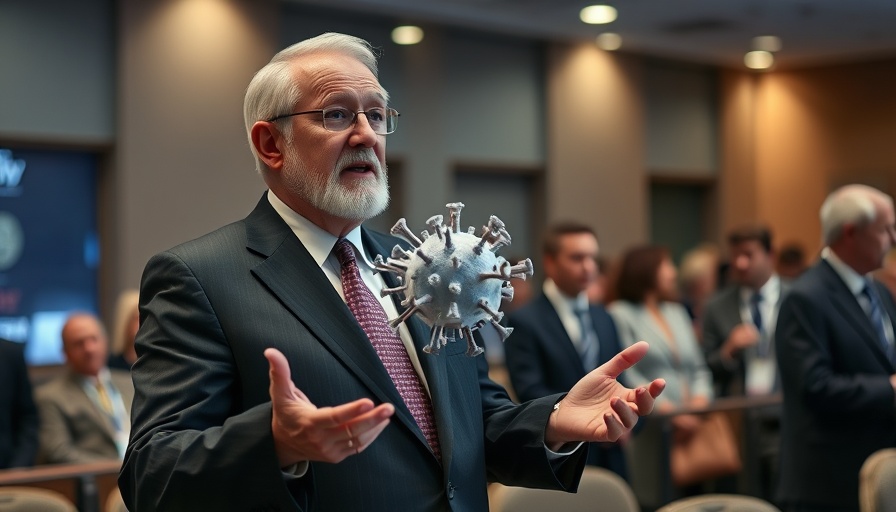
Trust in Public Health: A Fragile Balance
Trust between the public and health officials is crucial, especially during a crisis. Former National Institutes of Health (NIH) director Dr. Francis Collins highlighted this delicate balance during a recent event. The COVID-19 pandemic exposed vulnerabilities in public health communications that may have detracted from patient safety strategies. Collins emphasized that a confluence of political tensions and public health messaging missteps led to a significant erosion of trust. "When you mix politics and science, you just get politics," Collins noted, pointing out that this blurring of lines has dangerous implications for healthcare efficacy.
The Evolution of Political Influence on Science
Collins remarked that early in his career, the collaboration among government officials dedicated to healthcare was largely bipartisan. However, by the time the 2016 elections rolled around, a shift occurred. Once constructive discussions about healthcare priorities slipped into personal attacks fueled by a polarized political landscape. This change is increasingly evident in various areas of healthcare policy, where disagreements escalate into accusations, eroding the spirit of collaboration necessary for effective public health policy.
Lessons from Pandemic Response
Reflecting on his experience during the early days of the COVID-19 pandemic, Collins acknowledged the missteps contributing to public hesitation regarding vaccines. He stated, "It was a combination of judgment errors, which are easier to see in retrospect than when you're in the middle of an emergency." In the rush to provide clear guidance, health officials sometimes made definitive statements without fully acknowledging the uncertainties surrounding the virus. Such clarity, well-intentioned, inadvertently contributed to the perception that guidance was inconsistent, further alienating the public.
The Role of Social Media in Misinformation
Collins also pointed to social media's significant impact on public health communication. Rather than disseminating useful and accurate information, platforms often amplify inflammatory rhetoric that drives wedges between communities. This shift towards sensationalism hampers provider education efforts, making it vital for healthcare professionals to actively engage in counter-messaging strategies that prioritize factual information over sensationalism.
The Heartbreak of Vaccine Hesitancy
The consequences of losing public trust are stark. Collins expressed his sorrow regarding vaccine hesitancy leading to a dramatic loss of life. According to the Kaiser Family Foundation, approximately 234,000 deaths between June 2021 and March 2022 were attributed to this reluctance. “That is the most unbelievably heartbreaking story,” he lamented, envisioning these unnecessary losses as similar to three jumbo jets crashing every day for nine months. Such statistics underscore the urgent need for restoring faith in public health initiatives, particularly in vaccination campaigns.
Concrete Steps for Rebuilding Trust
Moving forward, it is clear that a reevaluation of how public health communicates and engages with the public is necessary. Collins advocates for a more transparent approach: consistently acknowledging uncertainty, thus allowing room for flexibility in guidance as new data comes to light. This practice could help healthcare professionals establish themselves not just as authorities but as allies in public health.
Conclusion: Returning to the Core Values of Healthcare
In the end, the path to restoring trust in healthcare systems requires a commitment to the core values of compassion, transparency, and collaboration among healthcare leaders and policymakers. Engaging the community through genuine dialogue can bridge the divides that politicized discussions have created. The lessons from COVID-19 must not only inform our current practice but also pave the way for a future where public health thrives independently from political agendas. Let’s commit to understanding each other and prioritizing public wellbeing over partisan interests.
 Add Row
Add Row  Add
Add 




 Add Row
Add Row  Add
Add 

Write A Comment